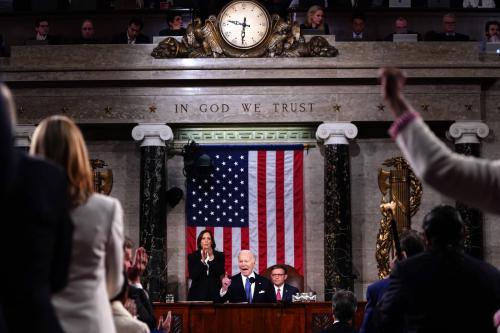

9:00 am EST - 12:00 pm EST
Past Event
9:00 am - 12:00 pm EST
1775 Massachusetts Ave., NW
Washington, DC
Foreign-born residents—students, skilled workers, professionals, and entrepreneurs, whether visiting temporarily or staying permanently—make important contributions to the U.S. economy, particularly in science and high-tech innovation. So what can U.S. immigration policy do to capitalize on highly skilled workers’ ideas and talents, while also maximizing the contributions of native-born citizens? What kind of foreign-born workers does the United States want to gain, and under what conditions? What policy changes should be enacted to ensure that America retains and attracts the world’s top talent?
On February 7, the Center for Technology Innovation at Brookings and the Center for Science and Technology Policy at George Mason University hosted a forum on immigration policies toward the highly skilled and the reforms needed to capture the benefits of a high-skill immigrant workforce. Discussants also shared new research findings on immigration’s role in spurring innovation.
After the program, panelists took audience questions.






Benjamin H. Harris, Liam Marshall
April 2, 2024

William A. Galston
March 8, 2024

Wendy Edelberg, Tara Watson
March 7, 2024